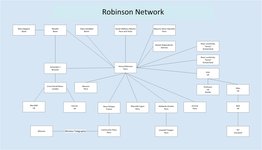Henry Robinson (spy)
Henry Robinson (May 8, 1897 – 1944)[1] was an intelligence agent of the Comintern murdered by the Gestapo.
Life

Born in Brussels, Robinson grew up in Belgium as the child of a Russian father and a Polish mother.[2] During the First World War, he studied in Geneva, where he worked with Willi Münzenberg.
At the beginning of the 1920s, he served as Political Director of the Young Communist League of Germany's Ruhr district and attended conferences in Berlin, where he met his partner Klara Schabbel. In 1923 they took part in the fighting against the occupation of the Rhine and Ruhr area by French troops. From about 1930 both worked for the intelligence service of the Comintern, which later merged with the Red Army's GRU intelligence service, and the Young Communist International.[3][4] Robinson became the section leader for Switzerland, France, and Great Britain.[5][6] Schabbel maintained links to Berlin and, through the Soviet commercial agency there, communications to Moscow until June 1941.
In December 1942 Robinson was arrested in Paris by the Sonderkommando Rote Kapelle.[7] According to British records, the RSHA had become aware of Robinson from information obtained from Leopold Trepper, whom they had previously arrested. After six months in Gestapo custody in France, where he was repeatedly tortured, Robinson was transferred to the Gestapo Detention Center in Moabit, Berlin, where he was murdered.
Other Reading
- Gilles Perrault: Auf den Spuren der Roten Kapelle (In the footsteps of the Red Orchestra). Europaverlag, Vienna, 1994, ISBN 3-203-51232-7.
References
- Schafranek, Hans; Tuchel, Johannes (2004). Krieg im Äther. Widerstand und Spionage im Zweiten Weltkrieg [War in the ether. Resistance and espionage during World War II.]. Vienna: Picus. p. 100. ISBN 3-85452-470-6 – via Google Books.
- Wolton, Thierry (3 February 1993). Le grand recrutement. Paris: Grasset. ISBN 2-246-44821-2 – via Google Books.
-
Coppi, Hans (1996). "Die „Rote Kapelle" im Spannungsfeld von Widerstand und nachrichtendienstlicher Tätigkeit. Der Trepper-Report vom Juni 1943" [The Red Orchestra in the field of resistance and intelligence activity. The Trepper Report of June 1943] (PDF). 44 (3). Vierteljahrshefte für Zeitgeschichte: 431–458 – via Google Books. Cite journal requires
|journal=(help) - "The Discovery Service: Henry Robinson". The National Archives (United Kingdom).
- Day, Peter (9 July 2015). The Bedbug: Klop Ustinov: Britain's Most Ingenious Spy. Biteback Publishing – via Google Books.
- Andrew, Christopher (29 August 2000). The Sword and the Shield: The Mitrokhin Archive and the Secret History of the KGB. Basic Books – via Google Books.
- "Nazi War Crimes Disclosure Act: Heinz Pannwitz debriefing" (PDF). CIA Library Electronic Reading Room.